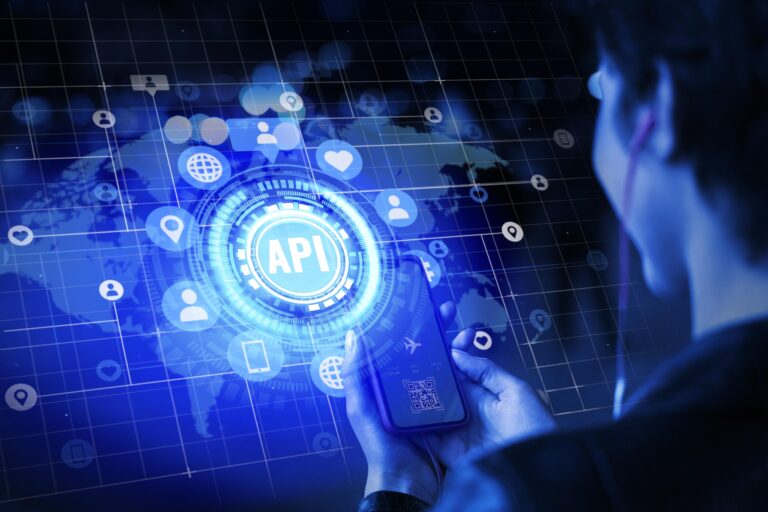In the ever-evolving landscape of technology, Artificial Intelligence (AI) has emerged as a transformative force, revolutionizing industries and reshaping the way we interact with machines. At the heart of this revolution lies the development of AI, fueled by sophisticated platforms that empower researchers, developers, and businesses to create intelligent solutions. In this blog post, we delve into the realm of AI development platforms, exploring their significance, evolution, and impact on innovation in the digital era.
Understanding AI Development Platforms
AI development platforms serve as comprehensive environments that facilitate the creation, training, deployment, and management of AI models and applications. These platforms offer a range of tools, frameworks, libraries, and APIs (Application Programming Interfaces) that streamline the development process, making it accessible to a diverse audience, from seasoned data scientists to novice enthusiasts.

Evolution of AI Development Platforms
The evolution of AI development platforms can be traced back to the early days of AI research when limited computing power and data availability constrained progress. However, with advancements in hardware, algorithms, and data collection techniques, the landscape underwent a paradigm shift, giving rise to a new generation of robust and scalable platforms.
Early Stages: In the nascent stages, AI development was largely confined to academic and research institutions, with custom-built solutions tailored to specific use cases. These early platforms laid the foundation for subsequent advancements but lacked the scalability and accessibility required for widespread adoption.
Emergence of Open Source: The advent of open-source initiatives such as TensorFlow, PyTorch, and scikit-learn democratized AI development, fostering collaboration and innovation within the global community. Open-source platforms provided developers with access to state-of-the-art tools and frameworks, accelerating the pace of AI research and development.
Cloud-based Solutions: With the proliferation of cloud computing services, major tech companies began offering AI development platforms as part of their cloud offerings. Platforms like Google Cloud AI, Microsoft Azure AI, and Amazon SageMaker provided developers with scalable infrastructure, pre-trained models, and integrated development environments (IDEs), enabling rapid prototyping and deployment of AI applications.
AI Marketplaces: In recent years, AI marketplaces have emerged as centralized hubs where developers can discover, deploy, and monetize AI models and services. These platforms offer a diverse range of pre-trained models, APIs, and tools, empowering businesses to leverage AI capabilities without the need for extensive expertise or infrastructure.
Key Components of AI Development Platforms
AI development platforms encompass a wide array of components designed to support the entire lifecycle of AI projects. Some key components include:
Data Preparation and Exploration: Tools for data cleaning, preprocessing, and visualization to ensure high-quality input for model training.
Model Development: Libraries and frameworks for building, training, and optimizing AI models, including deep learning frameworks like TensorFlow and PyTorch.
Deployment and Integration: APIs, SDKs, and deployment pipelines for deploying AI models in production environments and integrating them into existing systems and applications.
Monitoring and Management: Tools for monitoring model performance, detecting drift, and managing versions to ensure continuous improvement and reliability.
Collaboration and Community: Features for collaboration, knowledge sharing, and community engagement, including forums, tutorials, and code repositories.

Impact on Innovation
The advent of AI development platforms has democratized access to AI technology, empowering individuals and organizations across industries to innovate and solve complex challenges. Some notable impacts include:
Accelerated Development Cycles: AI development platforms streamline the development process, reducing time-to-market for AI-powered solutions and enabling rapid experimentation and iteration.
Democratization of AI: By abstracting away complexities and providing pre-built components, platforms democratize AI development, allowing individuals with varying levels of expertise to participate in the AI revolution.
Cross-industry Applications: AI development platforms facilitate cross-industry collaboration and knowledge transfer, enabling innovations in areas such as healthcare, finance, agriculture, and transportation.
Ethical and Responsible AI: Platforms incorporate tools and frameworks for ethical AI development, promoting transparency, fairness, and accountability in AI systems.
Future Outlook
As AI continues to permeate every aspect of our lives, the role of AI development platforms will only become more pronounced. The future of AI development platforms is characterized by:
Advancements in AI Research: Platforms will incorporate cutting-edge research and techniques, pushing the boundaries of what is possible in AI development.
Greater Integration and Automation: Platforms will offer seamless integration with other technologies such as IoT, edge computing, and blockchain, enabling the development of AI-driven ecosystems.
Focus on Responsible AI: There will be increased emphasis on ethical and responsible AI development, with platforms integrating tools for bias detection, explainability, and privacy preservation.
Empowerment of Citizen Data Scientists: AI development platforms will empower citizen data scientists and domain experts to contribute to AI innovation, fostering a more inclusive and diverse AI community.
conclusion
In conclusion, AI development platforms play a pivotal role in driving innovation and democratizing access to AI technology. By providing developers with the tools, resources, and infrastructure needed to create intelligent solutions, these platforms are shaping the future of AI and ushering in a new era of digital transformation. As we navigate the complexities and opportunities of the AI landscape, the evolution of AI development platforms will continue to be at the forefront of technological progress, unlocking new possibilities and fueling the next wave of innovation.











